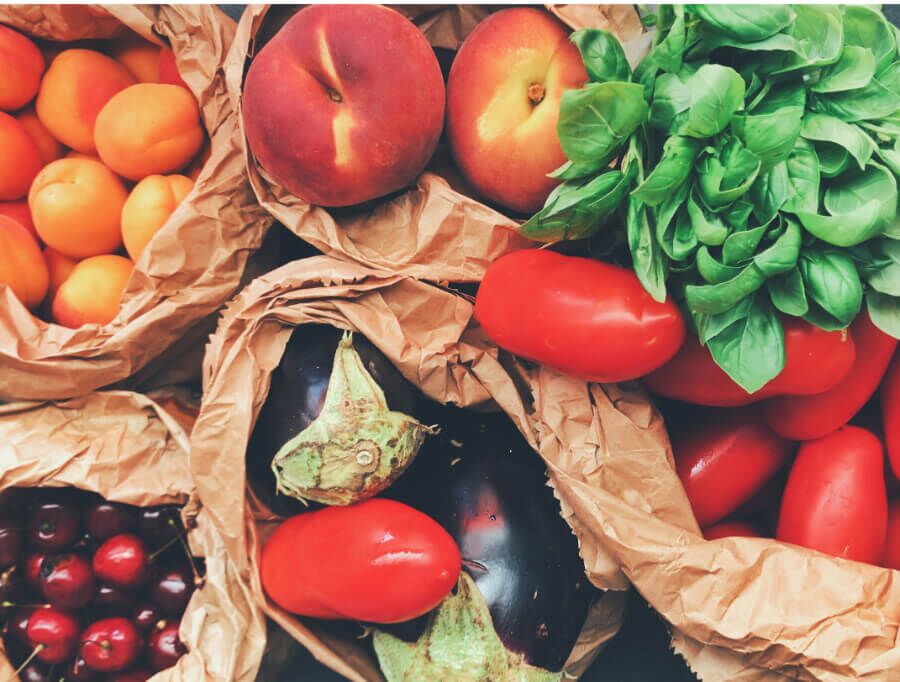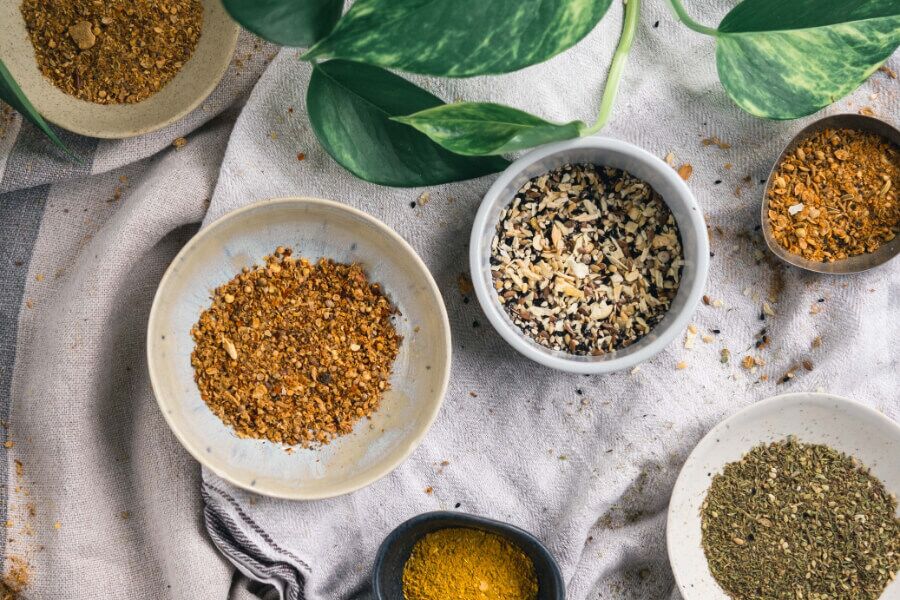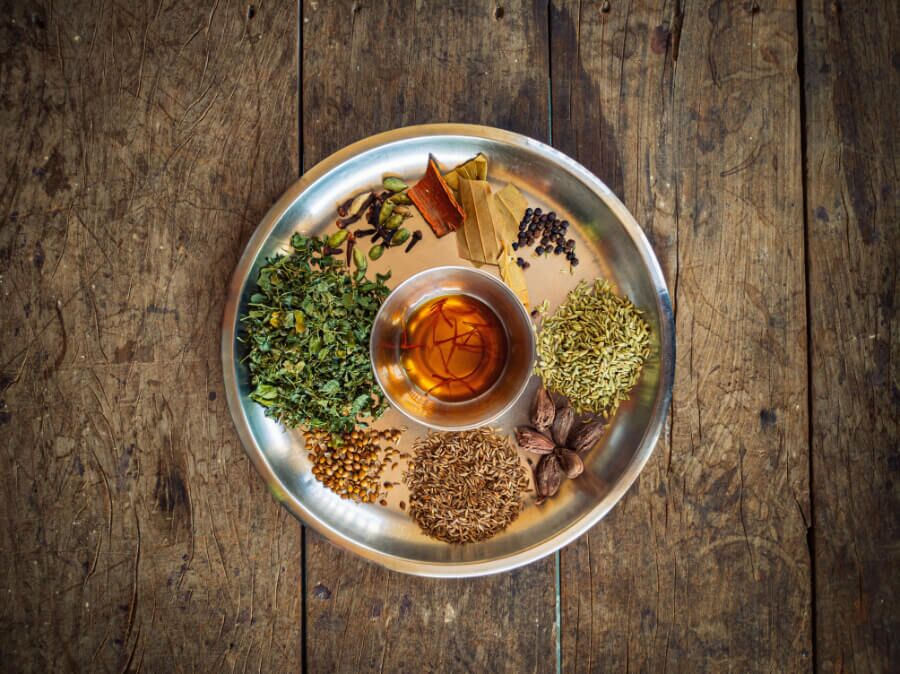What is Healthy Eating?
Health and Wellbeing
Your cart is empty.
SUBTOTAL
£0.00

Health and Wellbeing
Eating healthily is one of the choices we can make to give ourselves the best possible chance of physical, mental and emotional well-being. “Food is better medicine than drugs.”(Patrick Holford). It is easy to feel cheated when our bodies let us down and do not allow us to lead happy, pain-free and fulfilling lives. But how can we expect them to support us when we often give little thought as to how we, in turn, support them?
There is no doubt that the most sophisticated organism on Earth makes a valiant attempt at converting everything thrown at it into useful ‘fuel’. However, we cannot expect it to perform miracles!
The human body requires a balanced, varied diet incorporating all the necessary nutrients for growth and development, at the same time arming itself against illness and disease. The long accepted mantra “We are what we eat” (The German philosopher Ludwig Feuerbach, 1848) has never been more true.
Processed junk food and over-eating, along with polluted air, chemically altered substances that come into contact with our skin and lack of exercise, all have the potential to be life-limiting. It may be very difficult to have complete control over all the harmful contaminants and influences in our environment, but we can assume responsibility for what we put in our mouths. An awareness of healthy eating must include a knowledge of good quality food, balanced nutrition and an understanding of appropriate quantities can help us make informed choices about a healthy diet.
As a ‘rule of thumb’ all foods come under one of the following categories. However, those that are rich in multiple nutrients may not fit exclusively into any one group.

Fruit and vegetables are an excellent source of vitamins (A, C and E) and minerals including folic acid, zinc, magnesium and phosphorous. Eating a wide range of fruit and vegetables to include the whole spectrum of colours, maximises their health giving properties. They also contain a great deal of dietary fibre which aids healthy bacteria in the digestive tract. Remaining largely undigested, it helps to maintain bowel health, lower cholesterol, control blood sugar, prevent chronic renal failure and maintain a healthy weight. Many of us do not eat enough fibre.
Carbohydrates are plant-based foods. They consist of starches and sugars that break down into glucose to feed cells and provide essential energy to the brain and body. Grains – wheat, oats, barley, rye – used in bread, other baked items, porridge and pasta, together with rice and potatoes are important starches. Whole grains break down more slowly in the gut to avoid spikes in blood sugar. Useful quantities of fibre, B vitamins and magnesium come from whole grains and tubers. Refined carbohydrates have had most of the fibre, vitamins and minerals removed creating, for example, white flour and white rice.
Sugars are ‘natural’, as in fruit and milk and ‘free’ as in granulated sugar, glucose syrup and honey. Refined and processed ‘free’ sugars and syrups are found in sweets, fizzy drinks, breakfast cereals and baked goods.
Meat, fish, eggs, legumes (peas, beans and lentils) and nuts all come under the heading of protein and represent a great fuel source. Important in boosting stamina, protein helps in the production of hormones and enzymes and supports the growth and repair of cells, especially muscles.
Milk and the products of milk – yogurt, cheese and butter supply us notably with calcium to strengthen bones and teeth. However, other benefits are derived from the carbohydrates, protein, many vitamins (A, D, B12, riboflavin and niacin) and minerals (phosphorous and potassium) inherent in everything ‘dairy’.
Fat is a source of energy. It protects the major organs in the body by reinforcing cell membranes and is an insulator. It helps with the absorption of vitamins A,D,E and K.
Saturated fat comes from meat and dairy and is found in some vegetable derivatives such as coconut and palm oil. It can increase the risk of heart disease by raising ‘bad’ cholesterol.
Monounsaturated fat helps prevent heart disease by lowering ‘bad’ cholesterol. Olive and rapeseed oil, together with nuts, seeds and avocados have this beneficial effect.
Polyunsaturated fat contains omega 3 and omega 6 (essential fats the body cannot produce) and lowers ‘bad’ cholesterol. It is found in sunflower and corn oil, nuts, seeds and oily fish.

A balanced diet can address all the human body’s nutritional needs and be the first line of attack in preventing illness and weight gain. By supporting the immune system (“the set of tissues which work together to resist infections” Wikipedia) and with an emphasis on quality and quantity they will help maintain physical, mental and emotional well-being. An awareness of the different food groups and the proportion of each food type necessary for optimum health has led to very similar recommendations about what we put on our plates.
There is much agreement that diets should be plant based with lesser proportions of items from the protein, dairy and fat categories.
The aim for optimum health should be –
Equally essential is water in various forms. Opinions differ as to a daily amount and can range from three to seven pints. About 20% of fluid intake comes from food.
The British Nutrition Foundation www.nutrition.org.uk
The Eatwell Guide – NHS www.nhs.uk
Sugar, salt and fat – the three food words with the worst connotations! These are the three most commonly used additives in processed food. We use them ourselves as taste enhancers, probably without considering their potential harm.
‘Free’ sugars are empty calories that cause tooth decay.
Salt is an important nutrient helping to regulate blood pressure, fluid balance, muscle contractions and nerve function. However, there is much controversy as to its over-use.
Saturated (mainly animal) fats and trans fats are linked to high ‘bad’ cholesterol and heart disease. The chemical properties of trans fats (cheap processed hydrogenated cooking oils) are deemed to be amongst the most dangerous of food additives
Which Foods should we leave on the Supermarket Shelves?
“We are living in a world today where lemonade is made from artificial flavours and furniture polish is made from real lemons.” (Alfred E. Newman)
Substitute fresh/frozen, seasonal (if possible) foods for the following:-
It is always important to read food labels and look for anything that rings potential alarm bells!
The following should take up a small percentage of a healthy, balanced diet.
Pastries, biscuits, cakes, sweetened breakfast cereals, canned fruit in syrup, sweets, candy bars, fizzy drinks, low fat yogurts, ice cream and most desserts.
Canned soups, canned meat, processed meat (eg sausages, salami, burgers), processed cheese, ‘spreads’, frozen meals, processed meals in any form and fast food to include pizzas, fish and chips, burgers, fried chicken, kebabs, milkshakes and doughnuts – amongst many others.
However, we must remember that food does not only sustain us it is also one of life’s greatest pleasures. To consider a blanket ban on all food deemed unhealthy would be unrealistic and very difficult, if not impossible, to maintain. The occasional treat can be an acceptable indulgence as part of a wholesome, varied diet and do no long lasting harm.
The amount of energy we get from food is measured in calories. If we do not use all the calories we consume the excess is stored as fat and can result in weight gain.
A healthy daily calorie count for men is 2.500kcal and for women 2.000kcal. When this is exceeded on a regular basis by a significant amount it may lead to obesity which can be a serious risk to health.
Counting calories can be a useful tool in any attempt to lose weight but it is still very important to identify the right sort of calories in terms of nutrition. A proper balance of healthy nutrients is essential to regain a healthy weight in a safe way.

Reducing the number of ‘take-outs’ – those ever tempting pizzas, burgers and chips, and those seductive fizzy drinks, sweets and doughnuts, in pursuit of a healthier life style need not mean a bland and boring diet.
Chefs worldwide have been inspired by the wonderful aromas, tastes and health giving properties of herbs and spices. For thousands of years across many cultures their sensational flavours and health benefits have been revered.
From subtle, warming, earthy, nutty and smokey, to rich, peppery, tart, fiery and explosive, herbs and spices can turn ordinary food into the amazing. In chillis, curries, sauces, stews, stir-fries, stocks, dips, salads, rubs and condiments – whether slow cooked, barbecued, baked, grilled, steamed or fried – herbs and spices come into their own in revitalising what we eat. See healthy recipes.
These fragrant, aromatic, natural food enhancers can reduce the need for added salt, sugar and fat. What’s more they have the unexpected added bonus of essential nutrients to boost our well-being. An immense range of common place and exotic herbs and spices have medicinal properties that have been known over the centuries. They are full of healthy plant chemicals and are far more effective than supplements in their ability to ward off disease. Anti-inflammatory, antibacterial, antimicrobial, antioxidant, full of vitamins and minerals, herbs and spices are recommended as an important part of our everyday diet. They can help in preventing obesity and are a surprising tool in the maintenance of all bodily functions. Spice blends are particularly good giving multiple health benefits.
Pursuing lifestyle changes incorporating healthy eating is an opportunity to experiment with an extensive range of new tastes and aromas. The joys of cooking cannot be overestimated. It is an adventure waiting to happen…

“The heart of the home beats in the kitchen and a healthy one beats three times a day.” (Bangambiki Habyarimana. The Great Pearl of Wisdom)
A good relationship with food should be part of a child’s very early development. Learning by example that a healthy varied diet encompassing many different tastes, colours and textures can be fun, is a life-long, valuable asset.
Now more than ever, it is important to consider what supports us on the inside. Surrounded by a multitude of dietary options we need to be equipped with the knowledge that helps us select the most beneficial in terms of growth and development, resistance to harm and the promotion of overall well-being. A robust constitution is a goal well worth pursuing.
Food is an essential ‘building block’ contributing to our physical, mental and emotional welfare. As we do not have to run marathons and climb mountains to benefit from exercise, neither do we need to become vegetarian or vegan (as commendable as a totally plant based diet can be) to profit from what we put on our plates. The importance of food should never be underestimated. The preparation and enjoyment of healthy food is an endless pleasure with endless benefits.
While we are increasingly getting the message that opting for a balanced diet and exercise is safer and easier to stick to than faddy and quick fix diets, it can sometimes be really hard to think of new and exciting recipes to keep our meals interesting and balanced as well as our taste buds & waistlines happy.
Spices are a great way of creating interesting & flavoursome meals which are both healthy and good for our waistlines too. So if you’re in need of some inspiration, why not try our improved Recipe Search Facility, featuring recipes from all worldwide cuisines and now with eight dietary criteria to choose from, including low fat and low carb. We regularly update our collection of recipes and our new low fat recipes include spice rubbed fish or, for those of you with more of a sweet tooth, low fat spiced biscuits see below for more to inspire you and your taste-buds:
Understanding Spices
Spices have long been integral to the UK's culinary landscape, adding depth, flavours, and richness to a myriad of dishes. From the pungent aroma of cumin in Indian curries to...
Read MoreUnderstanding Spices
Confetti is an essential part of any wedding day. Not only is it a wonderful way to greet a newlywed couple, but it also provides some beautiful photo opportunities. The...
Read MoreSeasonal Ideas
It’s no secret that any handmade gift will always be more special than a store-bought one. Homemade food gifts are especially wonderful, a labour of love that shows someone you...
Read MoreHealth and Wellbeing
It’s no secret that winter’s cold and gloomy weather makes us crave indulgent dishes like fondue and baked goods like sticky toffee pudding and apple crumble. While Christmas is the...
Read More